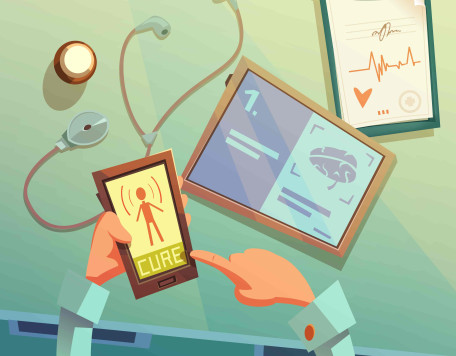© Pint of Science, 2025. All rights reserved.
Strap in for a whirlwind journey! From cutting-edge gene editing to the mysteries of immune memory and the battle against aging cells, we'll explore how today's science brings us closer to outsmarting death. No lab coat needed—just bring your curiosity!
Gene Editing: Fact vs Fiction
Issie Rose
(PhD Student, Institute for Infection and Immunity)
Should we fear the genetic scissors? This talk will concern different theories and worries surrounding gene editing which are frequently mentioned in the media and clarify the difference between gene therapies and gene editing. It will also address current work with base editing in a digestible manner, and why these therapies take so long to progress to and through clinical trials.
Maintaining Immune Memories – Life and death in the land of the Lymphocyte
Derek Macallan
(Professor of Infectious Diseases and Medicine)
Immune memory ensures we get rid of infections and stop them coming back. It is the basis for vaccination. But where is “immune memory”? It results from the selective accumulation of white cells called lymphocytes. Having the right number and type of lymphocyte is key to immune memory; it is achieved by balancing life and death within thousands of small subpopulations. In our research we use isotope tracers to directly measure these survival and death rates in humans. We can show how immunity is created and maintained and have identified a “master-switch” which controls lymphocyte survival and determines how well we fight infections.
Cell Senescence: is protection from cancer the reason we age?
Dot Bennett
(Professor of Cell Biology)
As we all know, getting older makes us more and more likely to have various disorders like arthritis and heart disease, not to mention grey hair and wrinkly skin. Research in the 21st century has linked these changes with a state that normal cells can get into, called cell senescence, where they cannot divide any more. Why do they do that? Dot Bennett will aim to explain how the same process defends us from getting thousands of cancers each, and what it has to do with the ends of chromosomes unravelling.
Map data © OpenStreetMap contributors.
Other The Battersea Barge events
2025-05-20
Smartphones and Smart Medicine
The Battersea Barge
Nine Elms Lane, London, SW11 8PZ, United Kingdom
2025-05-19
Beyond Earth: The Search for Life in Our Solar System
The Battersea Barge
Nine Elms Lane, London, SW11 8PZ, United Kingdom



